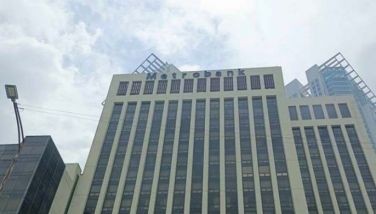Work and well being

Before the global health pandemic, many companies were already considering the impact of health and wellness on their employees. Several companies, especially those that had trouble with high levels of attrition, were looking closer at what was causing employee burnout and eventually resignation. In many cases, the answer wasn’t the difficulty of work, but more about stress, high pressure, and the impact of increasing work and deadlines on mental health.
For many companies, this overall decline in employee wellness meant re-assessing how they promoted overall health and well-being for their teams. Whether it meant providing mental health support, having mental health leaves, or encouraging more open discussions on feeling overwhelmed and unwell at the office. Most of these topics were considered taboo several years ago, but have now come to light as legitimately important workplace discussions.
This became even more prominent during the pandemic as experts thrust health into the spotlight even more. People noticed, more than ever, that their health and wellness were important. Scientists even noted that those with overall better health were less likely to suffer the more intense consequences of COVID-19, especially the succeeding less deadly strains. It became essential to prioritize health again. Part of this meant finding a genuine work-life balance and not being chained to a desk 24/7.
However, the reality is that despite health coming back as a vital priority area, many Filipinos are still faced with the painful reality that they have to work increasingly hard just to make ends meet. Again, this is even more true after two years of a global pandemic that necessitated various levels of lockdown and business closures. A recent survey showed that more Filipinos ended poor in 2021 compared to three years ago after COVID-19 destroyed any poverty reduction gains of the past several years.
As of the most recent survey, more than 19.99 million Filipinos live below the poverty line. This number has increased significantly from last year and is much higher than the recorded rate of over 17 million in 2018. The impact of COVID-19 on employment, income losses, and access to regular productive jobs has made Filipinos’ lives much more difficult. This has resulted in them working even harder and prioritizing themselves even less.
At this point, Filipinos are often working whatever and however many jobs they can find. The global inflation and increase in the cost of goods and services have made even the essentials less affordable. Unfortunately, many jobs can’t match their salaries to the increased cost of living. This leaves many Filipinos looking for more jobs to work just to earn extra income to cover their expenses. Working more jobs with fewer hours to rest leads to more burnout and unhealthier, unhappy Filipinos.
It’s a vicious cycle and one without a ready answer. How do we prioritize health and wellness in our workers when they can’t afford to stop working? In another survey, most Filipino employees were recorded saying they opted not to go on sick leave even when unwell due to high job demands, the fear of missing work opportunities, and the inability to have lost income.
The study, conducted in June by Milieu Insight, showed that 71 percent of the respondents from the country opted to continue working despite feeling unwell and choosing not to take sick leave for one or all of the reasons stated above. Countries with similar responses to the Philippines included Thailand, Singapore, and Vietnam.
So how do businesses help employees put a premium on their well-being? While many companies presently can’t afford to raise their wages as they are also bouncing back from the global health crisis’s impact, they still need to help care for their employees. After all, it has been proven that healthy and happier employees are more productive and, therefore, better for the business. And employees that are feeling overwhelmingly stressed, sick, or unhappy will ultimately be bad for business, attrition, and overall team morale.
There has to be a happy medium, which might mean exploring new ways to tackle employee engagement. Companies have to make workers more engaged in defining their meaning of engagement. Many businesses are already making headway when fostering more inclusive and safe workplaces where employees are supported and have access to physical and mental wellness programs, and that’s a start.
The next step is instilling a company culture that helps mitigate the fear of being able to take a leave when things get overwhelming. Create programs that promote remote work when employees need to decompress and find better ways of promoting collaboration without competition and incentives for high productivity and exceptional results instead of rewarding “most hours spent at the office.”
If Filipino workers see that they are more appreciated for working smarter versus working harder, I believe that everyone will benefit. More innovative solutions and high product-output-based work should be rewarded. In addition, companies need to explore more sustainable solutions versus working more hours. If both businesses and employees work together, we can find new sustainable ways of working that benefit everyone in the long run.
- Latest
- Trending


























